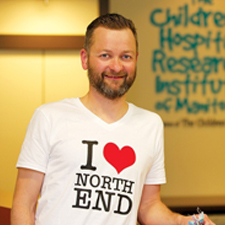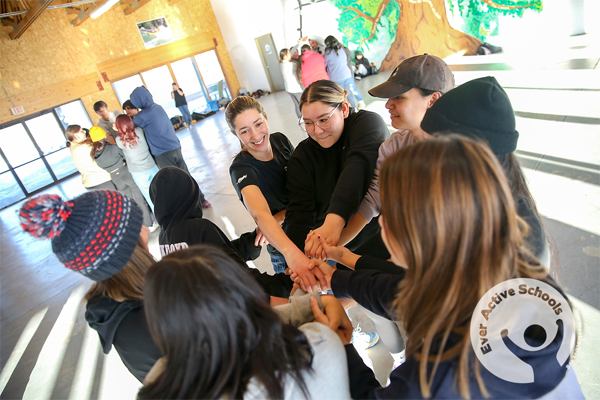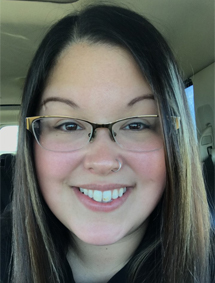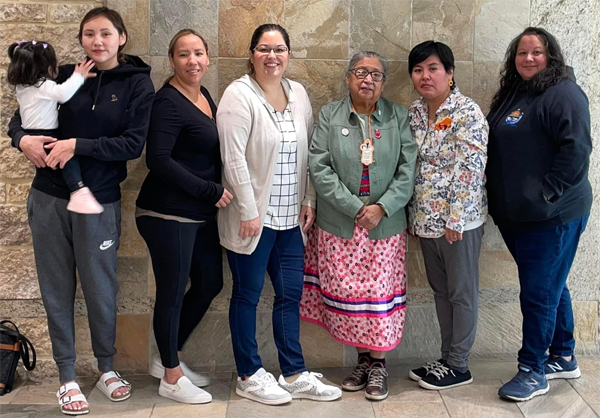Network supports empowerment of Indigenous patients in diabetes research
Indigenous traditions and respectful engagement are teaching researchers and health care professionals more effective ways of managing and reducing diabetes

Once a disease primarily of adults, type 2 diabetes (T2D) is now one of the fastest growing pediatric chronic conditions worldwide, with Indigenous populations among the most affected. In Canada, nearly half of the new cases of T2D reported are among Indigenous children and youth.
Diabetes Action Canada (DAC), one of the SPOR Chronic Disease Networks, has recognized the importance of addressing the challenge of diabetes in Indigenous communities. They are responding by engaging Indigenous youth as allies in diabetes prevention and using Indigenous approaches to listening and sharing knowledge.
Making Indigenous health a research priority
One of the big research gaps participants identified early with Diabetes Action Canada was a lack of attention to Indigenous health.

"Indigenous people across Canada and worldwide are disproportionately affected by diabetes, with rates that are three-to-five times higher, depending on where you live. In Manitoba, rates for pediatric T2D are about 20-fold higher than they are in the rest of the country and most of those youth are Indigenous." The reasons for this disparity are complex. Risk factors include family history and genetics. Colonization has also contributed to the poverty, racism, stress, and lack of access to healthy food that increase the risk of disease, including diabetes.
DAC has since made Indigenous people's health one of its six main research programs. Until recently, the program was co-led by Dr. Alex McComber, a McGill University scholar and member of the Kanien'kehá:ka community of Kahnawake near Montreal. His ground-breaking work has been instrumental in putting Indigenous people with lived experience at the forefront of diabetes research across Canada.
Empowering Indigenous youth
DAC supports the Indigenous Youth Mentorship Program (IYMP), which takes a resilience-based approach to wellness. It's led by Indigenous teenagers who mentor elementary-school aged children in their community.

IYMP began as a pilot project in the Anishinabewaki (Oji-Cree) community of Garden Hill First Nation in Manitoba. It proved so successful that the elders asked for it to be "rippled out" to other Indigenous communities. IYMP has now expanded to 50 sites across Manitoba, Saskatchewan, Alberta, Quebec, Northern Ontario and inner-city Toronto, involving 1,500 children and 800 youth mentors annually.
Part of IYMP's success can be attributed to its focus on wholistic health – mental, spiritual, emotional and physical health. IYMP also fosters identity and is grounded in decolonial practice and resilience-based Indigenous theory such as the Circle of Courage and the Four Rs of respect, relevance, reciprocity, responsibility. Another key component to IYMP's success is flexibility. Although the essential conditions for implementing IYMP are established, communities have the flexibility to apply the program's components in a way that builds on their community's needs and strengths.
For example, one community ran their IYMP program after school on Friday, which boosted school attendance on a day most students were skipping. Another school ran their program during the lunch hour, so that high school students who could not usually attend after-school programs were able to attend IYMP. Even the role of the "youth mentor" is expanding, so that high school students can learn from their peers.
Indigenous Patient Circle – guiding priorities and appropriate engagement

Sasha Delorme was one of DAC's first Indigenous partners with lived experience of diabetes. She joined in 2017, five years after her son Brayson was diagnosed with Type 1 diabetes (T1D). Shortly after she started working with the network, she was diagnosed with T2D.
Ms. Delorme decided to get involved in diabetes research after experiencing the barriers that parents and patients can face.
"Working with the researchers and physicians has given me a voice that I didn't feel I had before," said Ms. Delorme. "Not only am I learning more about this disease and how to manage it both for my son and myself, I'm also learning more about my culture. My mother was adopted by a Caucasian family as part of the 60s scoop, so I didn't know a lot of the cultural things I should have known growing up. Being part of this group of Indigenous patient-partners has really helped me connect with that culture."
Ms. Delorme is a member of DAC's Indigenous Patient Circle, which includes 11 patients and caregivers who share their lived experience and knowledge to inform research priorities.
"When we started, the first priority was strengthening our bond with each other," she said. "Creating a space of trust allows us to have better and more meaningful conversations. We also have the space to come forward with our own ideas as opposed to researchers coming to us with their ideas."
Making a difference

The Indigenous Patient Circle has made important contributions to the network. They have helped guide workshops for trainees, patient partners and staff in culturally safe, anti-racist approaches to research. They have advised on research projects to ensure they are appropriate and meaningful for Indigenous people living with diabetes.
They have also contributed to several publications that determined priorities for improving diabetes care, established by Indigenous patients and scholars, made Indigenous people equal partners in the process of setting DAC's priorities, and helped determine strategies for ethical engagement of Indigenous patients in research projects.
"Connecting the Indigenous worldview to the patient-partners in Diabetes Action Canada has probably been one of the most important things we've done in our network," said Dr. McGavock. "The teachings that Indigenous patient-partners have provided to the network have been so empowering for the other patient-partners."
Read more SPOR in action articles.
- Date modified: